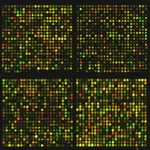
Blockchain Technology in Genomics for Enhanced Data Ownership and Integrity
October 12, 2023Blockchain technology can play a significant role in ensuring data integrity and security in bioinformatics databases, which are critical in managing sensitive and valuable biological and medical data. Here’s how blockchain technology can be implemented and its impact in this field:
Implementation:
- Database Overhaul:
- Blockchain can be integrated with existing databases maintained by health providers to ensure data integrity and improve system interoperability through real-time tracking of all data-related events1.
- Consensus Mechanisms:
- Blockchain systems like the medical blockchain system can adopt consensus mechanisms such as Practical Byzantine Fault Tolerance (PBFT) to ensure the safe and stable operation of the system with fewer computational resources, which is beneficial in medical information systems2.
- Integrated Data Management:
- There’s a growing trend in the database community to integrate blockchain and traditional databases to leverage the security, efficiency, and privacy features of both systems. This integration helps in obtaining better data management capabilities, especially in handling sensitive bioinformatics data3.
Impact:
- Data Integrity:
- Blockchain technology significantly enhances data integrity. Once a block containing data is added to the blockchain, it can only be modified through consensus among all participating nodes, making unauthorized alterations practically impossible4.
- Security Enhancement:
- Through cryptographic encryption inherent in blockchain technology, data is protected from unauthorized access, potential fraud, and manipulation. This feature is crucial for bioinformatics databases that store sensitive health-related data5.
- Decentralization and Transparency:
- Blockchain’s decentralized nature ensures that no single entity has control over the entire blockchain, and all transactions are transparent and verifiable by all users. This feature can foster trust and collaboration among stakeholders in the bioinformatics field.
- Audit Trails:
- The immutable nature of blockchain creates a verifiable audit trail for all transactions, which is invaluable in bioinformatics for tracking data modifications and ensuring compliance with regulatory standards.
- Stakeholder Impact:
- Implementing blockchain will inevitably impact stakeholders, disrupting traditional data management systems in clinical health records and necessitating adjustments in workflows and operations4.
- Improved Interoperability:
- Blockchain can significantly improve interoperability among different systems and databases in the bioinformatics field, facilitating better data sharing and collaborative research efforts1.
By embracing blockchain technology, bioinformatics databases can achieve enhanced data integrity, security, and other operational benefits, paving the way for more robust and trustworthy data management systems in the biomedical field.
The implementation and impact of blockchain technology in bioinformatics databases are part of a broader conversation around modernizing data management systems within the biomedical and healthcare sectors. The unique challenges posed by bioinformatics data, including its sensitivity, the necessity for accurate and immutable record-keeping, and the potential for groundbreaking discoveries, make the blockchain a valuable tool in this domain.
Continued Implementation Strategies:
- Smart Contracts:
- Smart contracts on the blockchain can automate certain processes within bioinformatics databases, such as access control, data verification, and the execution of predefined protocols, thereby reducing manual intervention and the potential for human error.
- Permissioned Blockchains:
- Deploying permissioned blockchains where only authorized entities can participate, can create a trusted environment for data sharing and collaboration while ensuring data privacy and security in bioinformatics databases.
- Decentralized Identifiers:
- Implementing decentralized identifiers can help in managing digital identities, ensuring the correct attribution of data and facilitating more reliable and trustworthy data exchanges within the bioinformatics community.
- Data Tokenization:
- Tokenizing bioinformatics data can help in creating a secure environment for data sharing, which is crucial for advancing research while ensuring the rights and privacy of individuals whose data is being utilized.
Additional Impacts:
- Cost Efficiency:
- The automation and streamlined processes enabled by blockchain can potentially reduce operational costs within bioinformatics data management systems.
- Compliance and Regulation Adherence:
- Blockchain’s immutable audit trails can simplify compliance with various regulatory requirements, making it easier for organizations to adhere to industry standards and legal mandates regarding data protection and privacy.
- Enhanced Trust:
- By providing a transparent and immutable record of data transactions, blockchain can enhance trust among stakeholders including researchers, healthcare providers, and patients, which is crucial for fostering a collaborative and innovative bioinformatics ecosystem.
- Fostering Innovation:
- The secure and collaborative environment enabled by blockchain can foster innovation by facilitating data sharing and cooperative research efforts in the bioinformatics field, thereby accelerating discoveries and advancements in biomedical research.
The integration of blockchain technology in bioinformatics databases is a significant step towards modernizing and securing biomedical data infrastructure. Through enhanced data integrity, security, and collaborative capacities, blockchain technology can contribute significantly to advancing the field of bioinformatics and the broader healthcare and biomedical research sectors.
The discussion surrounding the implementation and impact of blockchain technology in bioinformatics databases extends to the realms of feasibility, scalability, and the readiness of the bioinformatics community to adopt such technologies. Here are some additional considerations and future prospects:
Further Implementation Considerations:
- Scalability:
- Blockchain networks can face scalability issues, especially public blockchains. For bioinformatics databases, which may require handling large volumes of data, scalability solutions such as layer 2 protocols or sharding can be explored.
- Data Privacy:
- Although blockchain can enhance data security, privacy concerns may arise, especially in public blockchains. Privacy-centric solutions like zero-knowledge proofs or private blockchains can be implemented to address these concerns.
- Standards and Protocols:
- Developing standardized protocols for blockchain implementation in bioinformatics is crucial to ensure interoperability, data consistency, and to foster a collaborative ecosystem.
- Education and Training:
- There’s a need for education and training among bioinformatics professionals regarding blockchain technology to ensure its effective implementation and to maximize its benefits.
- Infrastructure Investment:
- Implementing blockchain technology in bioinformatics databases may require significant investment in infrastructure and technology, which could be a barrier for some organizations.
Future Prospects:
- Research Collaborations:
- Blockchain could facilitate international research collaborations by creating a trustworthy and secure environment for data sharing and project coordination.
- Real-Time Data Access:
- Real-time access to data facilitated by blockchain can significantly accelerate research processes, enabling quicker analysis and faster discoveries.
- Patient Empowerment:
- Blockchain can empower patients by giving them control over their own data, which could be particularly impactful in bioinformatics research involving human subjects.
- Integration with Other Emerging Technologies:
- The integration of blockchain with other emerging technologies like Artificial Intelligence (AI) and the Internet of Things (IoT) can provide innovative solutions for data management, analytics, and security in bioinformatics.
- Custom Blockchain Solutions:
- The development of custom blockchain solutions tailored specifically for bioinformatics applications could address the unique challenges faced by this field, paving the way for more efficient and secure data management systems.
The unfolding narrative of blockchain technology within bioinformatics is a testament to the ongoing efforts to modernize and secure data management systems in biomedical research. The holistic integration of blockchain, accompanied by a well-informed community and supportive regulatory frameworks, could significantly propel advancements in bioinformatics and the broader realm of biomedical research and healthcare.
The interplay between blockchain technology and bioinformatics is evolving, with various stakeholders exploring its potential to the fullest. As the discussion continues, some more nuanced aspects and potential challenges come into focus.
Further Challenges and Considerations:
- Technical Challenges:
- The technical complexity of blockchain technology might pose challenges for bioinformatics professionals lacking in blockchain expertise. Overcoming this hurdle requires substantial education and training initiatives.
- Integration Challenges:
- The integration of blockchain with existing bioinformatics databases and systems might encounter resistance due to technical, organizational, or financial constraints. It necessitates a well-thought-out strategy to ensure smooth integration.
- Data Governance:
- Establishing robust data governance frameworks is crucial to ensure that the implementation of blockchain adheres to legal, ethical, and regulatory standards, especially given the sensitive nature of bioinformatics data.
- Performance Optimization:
- Performance optimization is crucial to ensure that the blockchain-based bioinformatics systems are capable of handling high transaction volumes and large datasets common in the field of bioinformatics.
- Community Acceptance:
- Gaining acceptance from the bioinformatics community, including researchers, institutions, and regulatory bodies, is essential for the successful implementation and scaling of blockchain solutions.
Future Engagements:
- Cross-Sector Collaborations:
- Collaborations between blockchain developers, bioinformatics professionals, and other stakeholders can foster the development of innovative solutions tailored to the unique needs of bioinformatics.
- Policy Frameworks:
- Developing supportive policy frameworks can facilitate the adoption of blockchain technology in bioinformatics, ensuring alignment with legal and regulatory requirements.
- Public Awareness and Engagement:
- Engaging with the public and raising awareness about the benefits and challenges of blockchain in bioinformatics can foster a supportive environment for its adoption.
- Research Funding:
- Securing funding for research on blockchain applications in bioinformatics can accelerate the development and implementation of blockchain solutions, driving innovation in the field.
- International Standards:
- Establishing international standards for blockchain implementation in bioinformatics can ensure consistency, interoperability, and trust among stakeholders across the globe.
Blockchain technology holds promise in addressing some of the perennial challenges faced by bioinformatics databases concerning data integrity, security, and interoperability. As the dialogue advances, engaging with a broad spectrum of stakeholders, addressing potential challenges, and fostering a conducive environment for innovation will be crucial steps toward realizing the full potential of blockchain technology in bioinformatics and the broader healthcare ecosystem.
The exploration of blockchain technology in bioinformatics is a part of a larger movement towards harnessing modern technologies to address long-standing issues and to propel the field forward. As discussions and implementations progress, there are several overarching themes and potential directions that emerge:
Sustained Dialogue:
- Multidisciplinary Dialogue:
- Engaging in continuous dialogue among bioinformatics professionals, blockchain experts, legal advisors, and other stakeholders is key to addressing the multifaceted challenges and opportunities that blockchain technology presents in bioinformatics.
- Forum Creation:
- Establishing forums for discussion, knowledge sharing, and collaborative problem-solving can help in fostering a community that is well-equipped to navigate the blockchain-bioinformatics intersection.
Technological Advancements:
- Blockchain Evolution:
- As blockchain technology itself evolves, new versions or types of blockchains might offer solutions to some of the current limitations, such as scalability and privacy concerns, faced in bioinformatics applications.
- Hybrid Solutions:
- Exploring hybrid solutions that combine blockchain with other technologies or database architectures might provide more nuanced and effective solutions for bioinformatics data management.
- Technology Convergence:
- The convergence of blockchain with other emerging technologies like 5G, edge computing, and quantum computing could further enhance the security, efficiency, and real-time data processing capabilities in bioinformatics.
Ethical Considerations:
- Ethical Frameworks:
- Developing ethical frameworks for blockchain implementation in bioinformatics is crucial to ensure that technology serves humanity while safeguarding individual rights and societal values.
- Informed Consent:
- Addressing informed consent in a blockchain-based bioinformatics ecosystem, especially when dealing with human genomic data, is an essential ethical consideration.
Evaluation and Assessment:
- Impact Assessment:
- Conducting comprehensive assessments to evaluate the impact of blockchain on bioinformatics, in terms of data integrity, security, and operational efficiency, is necessary for informed decision-making and further refinement of blockchain solutions.
- Success Metrics:
- Establishing clear metrics for success and benchmarks for evaluation can help in assessing the effectiveness and value-add of blockchain implementations in bioinformatics.
Funding and Resource Allocation:
- Resource Allocation:
- Allocating resources for blockchain implementation, including financial, technical, and human resources, is crucial for the sustained development and scaling of blockchain solutions in bioinformatics.
- Grant Opportunities:
- Exploring grant opportunities and other funding sources can support the research and development of blockchain applications in bioinformatics.
As the journey of blockchain technology in bioinformatics continues, it’s clear that a multidisciplinary, collaborative, and ethically grounded approach will be essential for navigating the challenges and unlocking the potential benefits that blockchain can bring to bioinformatics and beyond.
A notable real-world example of a bioinformatics database utilizing blockchain technology. In a study presented on Genome Biology, researchers developed a private blockchain network to store genomic variants and reference-aligned reads on-chain. This network aims to address challenges in data ownership and integrity associated with genome sequencing. The solution encompasses novel data structures based on nested database indexing, file-format modifications, and compression techniques, facilitated by the open-source blockchain API MultiChain. This blockchain network enables efficient storage and retrieval of personal genetic variants and raw genomic reads, marking a significant stride towards secure and robust genomic data management1.
The study presented on Genome Biology illustrates a pioneering endeavor to leverage blockchain technology for addressing inherent challenges in genomic data management, particularly focusing on data ownership and integrity. Here are the detailed aspects of the study as you inquired:
- Private Blockchain Network Development:
- Researchers designed a private blockchain network to host genomic variants and reference-aligned reads on-chain. Unlike public blockchains, private blockchains are restricted to a specific group of participants, providing a controlled environment that’s suitable for sensitive genomic data.
- Addressing Data Ownership and Integrity:
- The primary motive was to tackle the challenges surrounding data ownership and integrity that arise with genome sequencing. The data ownership issue is significant in genomics, as individuals should ideally have control over their own genomic data. Additionally, ensuring data integrity is crucial to maintain the accuracy and consistency of genomic data over its entire lifecycle.
- Novel Data Structures:
- To overcome the technical hurdles, researchers developed novel data structures grounded on nested database indexing. This technique facilitates efficient data retrieval, which is critical for handling large genomic datasets.
- File-Format Modifications and Compression Techniques:
- The researchers also employed file-format modifications and compression techniques to optimize the storage and retrieval of genomic data on the blockchain. These adaptations help in reducing the space required to store vast amounts of genomic data, making the blockchain a viable solution for genomic data management.
- Utilization of MultiChain Open-source Blockchain API:
- MultiChain, an open-source blockchain API, was utilized to implement this private blockchain network. MultiChain offers features like “data stream,” which allow the creation of multiple key-value, time-series, or identity databases. This feature was harnessed to efficiently manage genomic data on the blockchain.
- Efficient Storage and Retrieval:
- The blockchain network was engineered to enable efficient storage and retrieval of personal genetic variants and raw genomic reads. This efficiency is crucial for real-time or near-real-time analysis of genomic data, which could be critical in clinical settings.
- Modules for Data Storage and Analysis:
- The system comprised two modules: one for efficiently storing and querying variant call format (VCF) files, and the other for managing sequence alignment map (SAM) data. These modules were designed to not only store genomic data but also to facilitate various analytic functions, demonstrating the blockchain’s potential to serve as a comprehensive platform for genomic data management and analysis.
- Focus on Querying/Analysis Speed:
- The study emphasized optimizing data storage for faster querying/analysis, which is a departure from some existing blockchain genomic data storage solutions that prioritize data storage optimization at the expense of querying and analysis capabilities.
- Potential for Secure and Robust Genomic Data Management:
- By creating a blockchain network capable of securely storing and efficiently managing genomic data, this study marks a significant step towards robust genomic data management, underlining blockchain’s potential to revolutionize genomic data handling, especially in a clinical context1.
This initiative reflects a promising fusion of blockchain technology with genomic data management, showcasing a pathway towards secure, efficient, and user-controlled genomic data systems.

















